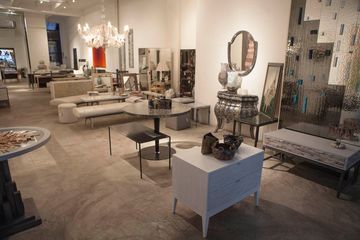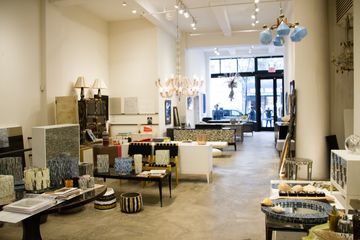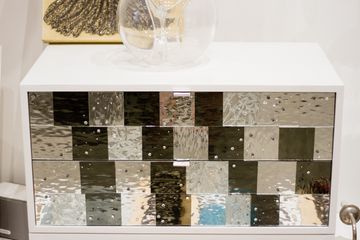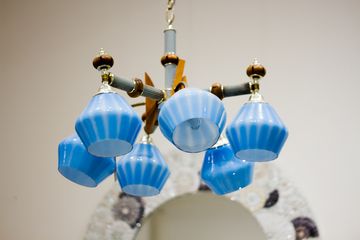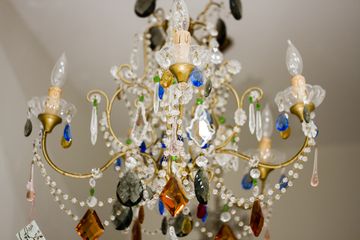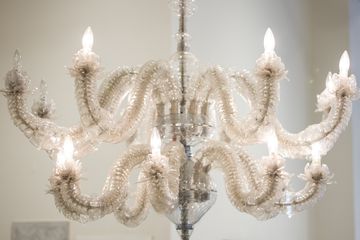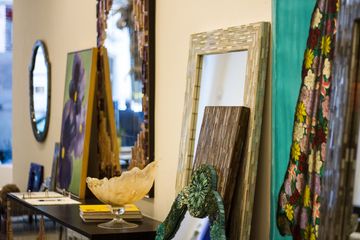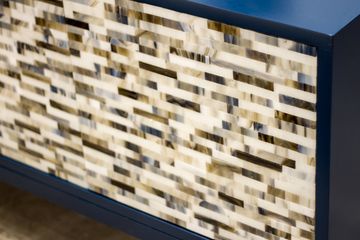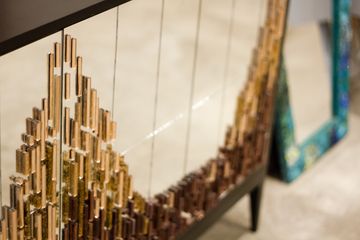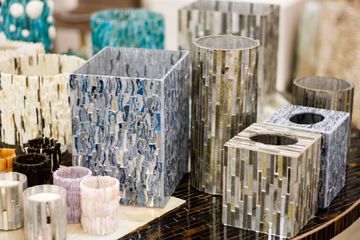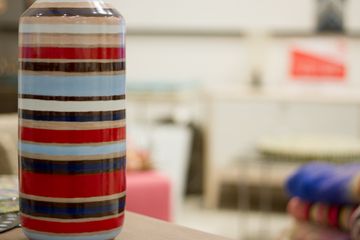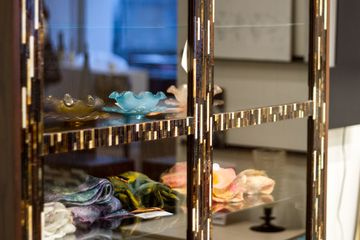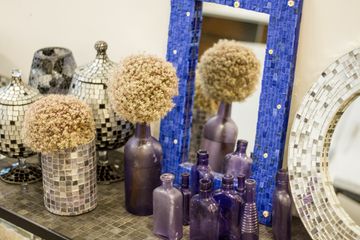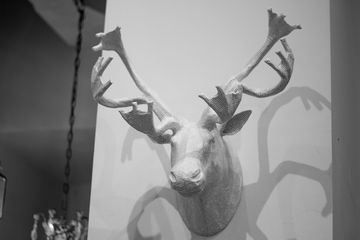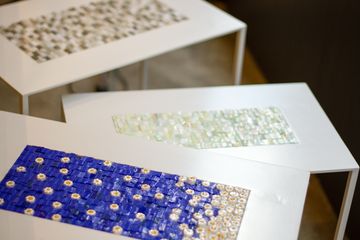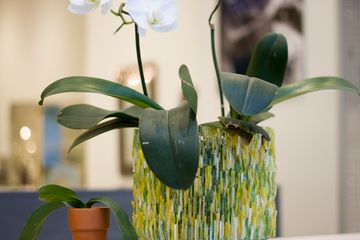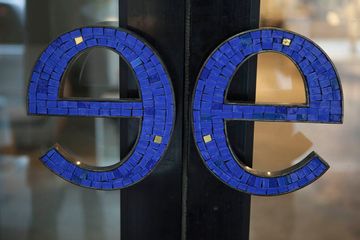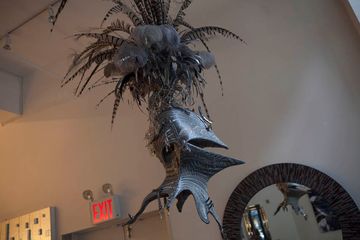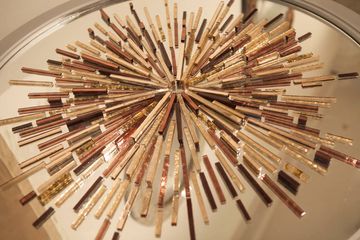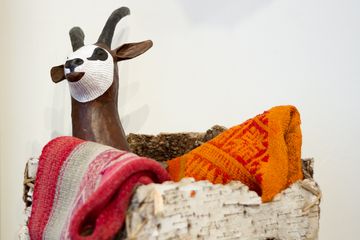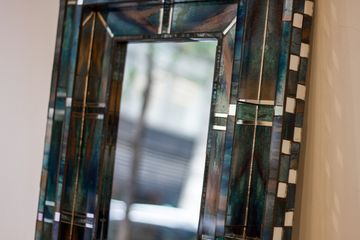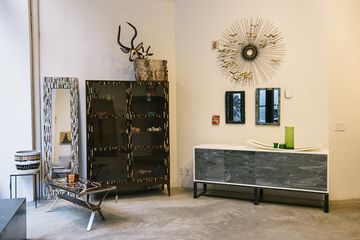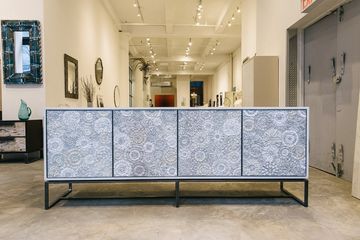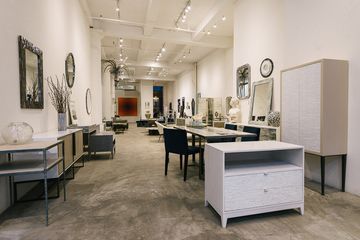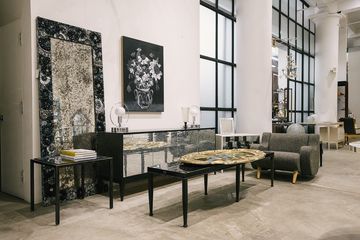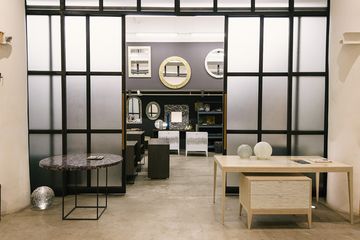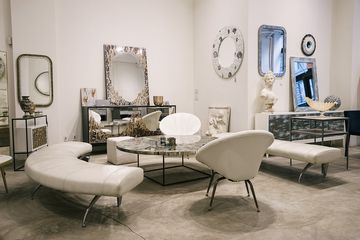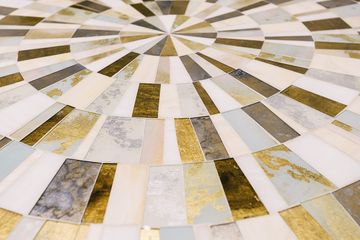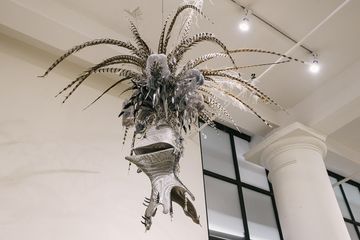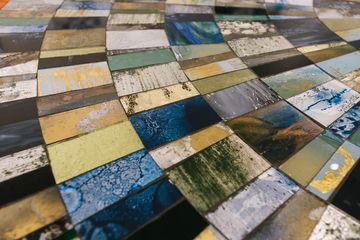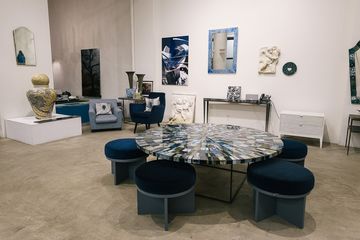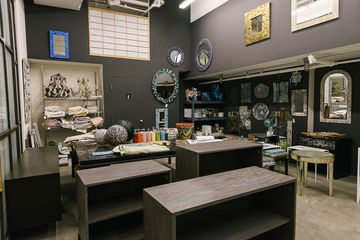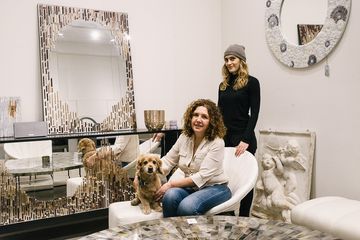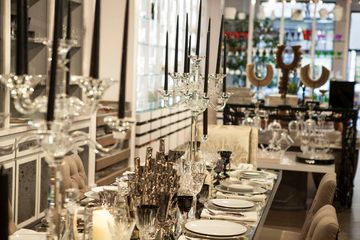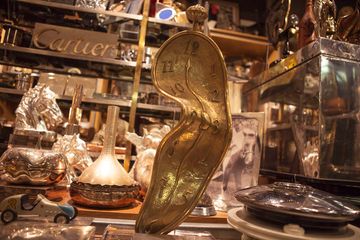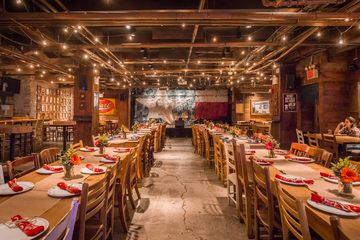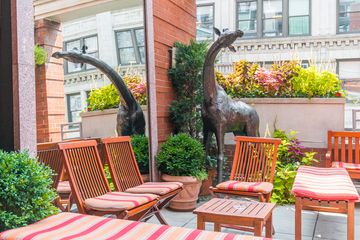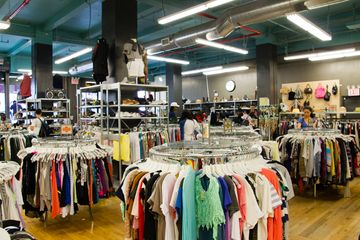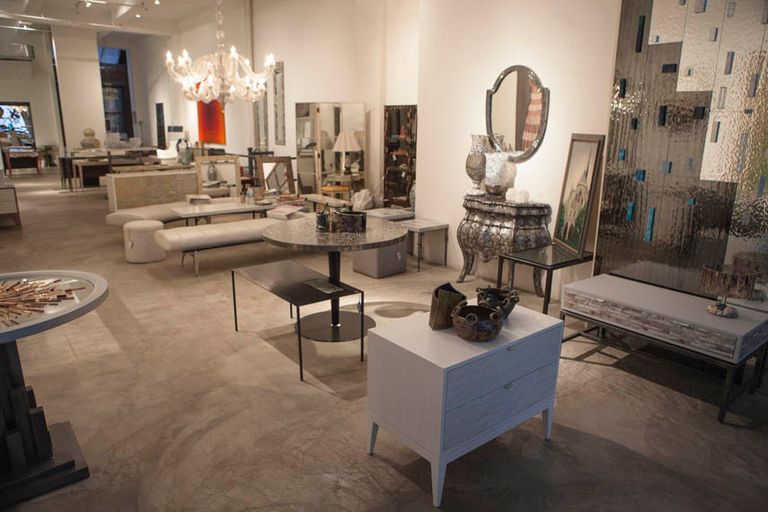
Ornella Pisano sits at the far end of the Ercole Home showroom. From her desk she can survey mirrors, tables, chests, and other home accessories that she has handcrafted using a combination of vintage china, silver leaf, resin, glass, sea shells, crystals, plaster, and wood to achieve the Ercole mosaic style. The beauty of the space is almost intimidating.
Ornella projects confidence and pride in her work, but more than once during our conversation she grew reflective as she spoke about the effort it took to get where she is today. The story of Ercole begins in Venice, where Ornella was born and raised. “I had some formal art training in Italy, but really I naturally absorbed what was around me each day. You have to understand that in one way or another, everyone in Venice is connected to glass,” she said, referring to the world renowned Venetian glass industry. “Not only that, but everywhere you look there is art. You open a door to a church and there is a gorgeous mosaic.”
After college, Ornella’s first stop in the United States was Key West, where she was a fashion stylist for movies. “I was working with colors, shapes, and textures, but after a while, I realized it was time to get serious.” She then spent some time in the New York art scene, and in 1986 she decided to start a business selling her mosaic pieces to interior designers. “One challenge was navigating the thin line between art and interior furniture. At Ercole, we make art.”
Ornella has been the sole owner of the company, which now has ten employees - most of them women. How has Ercole remained viable while many other business have a difficult time surviving in New York? “Running a business is a skill,” Ornella says. “There was a learning curve, but I basically have followed my core principles, just like I do in every aspect of my life. Those are Integrity, Honesty, and Sustainability. I try to convey these things with my designs, to send a message of beauty and order that contributes to my customer’s lives.” When I asked her about trends in her industry, Ornella laughed. “Really, honestly, we are one of those places that determines the trends. If anything, our design is too precocious. In the early days I would grow worried when a certain line would not sell. Now I never worry because I know, even if it takes two or three years, it will suddenly become the popular look of the moment.”
These days, Ornella enjoys working with anyone who has a vision for an Ercole product. “I am really curious about and open to the unexpected, of looking at color and form and shape in new ways. I don’t have a particular favorite because, for me, everything is beautiful. How can you say yes or no to one color when one color is really thousands of shades that can take different forms?”
As we neared the end of our time together, Ornella asked me to emphasize that she is aware that it is difficult to run your own businesses in Manhattan given the current climate. “Ercole is a proud New York company, but the small business environment is very hard, with the rent, wages, and benefits that are required. The city is going through a lot of changes and it could be more supportive to artisanal companies. You don’t want people walking around with Gucci and Prada as the only options of where to shop.”
When I asked whether she knew many other female business owners she said that she did not know of many others in her position, and that she was too busy to try to build a community. “Sometimes it can get a little lonely as one of the only women who run a sustainable business of this size in the area. But I hope that my story is an inspiration for other women who want to create something, to have a legacy, to be entrepreneurs.”
